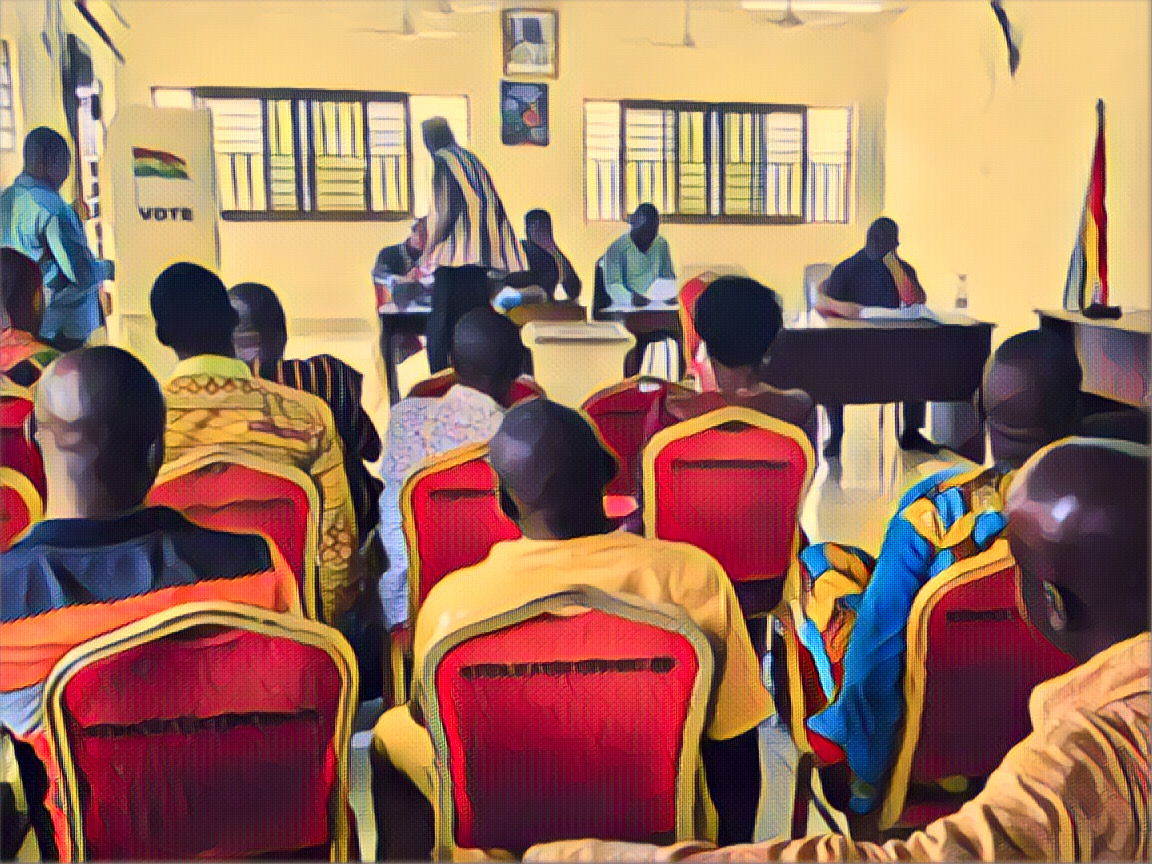In the heart of North Tongu, a district known for its vibrant communities and dynamic development projects, the local assembly has found itself in a challenging and unprecedented situation. After four attempts to elect a presiding member, the assembly remains at a standstill, unable to reach a consensus. This ongoing impasse has not only raised concerns among the constituents but also drawn attention to the broader implications of stalled local governance.
The District Chief Executive (DCE), Osborn Divine Fenu, has publicly expressed his frustration and concern over the situation. The inability to elect a presiding member, a role crucial for the assembly’s operations, has become a source of considerable disappointment for him and the community he serves. This deadlock threatens the assembly’s ability to conduct its business effectively, hindering the progress of developmental initiatives and potentially delaying essential services to the district’s residents.
The significance of the presiding member’s position cannot be overstated. As the linchpin for the smooth functioning of the assembly, this role facilitates the execution of decisions, the implementation of development plans, and the overall administrative efficiency of the local government. The absence of a presiding member thus poses a direct challenge to the assembly’s operational integrity and its capacity to serve the community’s needs.
During the most recent election attempt, which took place on a Thursday afternoon in the assembly hall, the atmosphere was tense as members struggled to find common ground. The repeated failures to elect a presiding member underscore the deep divisions within the assembly, reflecting a broader issue of partisanship or personal agendas overshadowing the collective good.
The DCE’s statement following the latest unsuccessful attempt highlighted the critical nature of the situation. “It is disheartening that we have not been able to elect a presiding member after four attempts. This is a critical position that is integral to the effective operation of the assembly and the delivery of services to our people.” His words resonate with a sense of urgency and a call for action among the assembly members.
This impasse has not gone unnoticed by the residents of North Tongu, who have voiced their concerns and dissatisfaction with the current state of affairs. The community’s expectation for swift and effective governance has been met with uncertainty, prompting calls for the assembly members to rise above their differences and prioritize the district’s welfare.
In response to the deadlock, there have been calls from various quarters for a renewed spirit of cooperation and collaboration among the assembly members. The need for unity and a collective focus on the district’s interests has never been more critical. The assembly is expected to reconvene in the coming days, with the community and officials alike hoping for a breakthrough that will allow the district to move forward.
As North Tongu stands at this crossroads, the resolution of this deadlock will not only determine the immediate future of its local governance but also set a precedent for how challenges are addressed in the spirit of communal progress and development. The situation calls for leadership, compromise, and a shared vision for the betterment of the district.
This unfolding story is a reflection of the complexities and challenges of local governance. It underscores the importance of effective leadership, the need for consensus-building, and the critical role of democratic processes in advancing the interests of the community. As North Tongu awaits the outcome of the next election attempt, the district remains hopeful that its assembly members will find a way to bridge their differences, elect a presiding member, and continue the important work of building a prosperous and inclusive community.
The North Tongu Assembly’s struggle to elect a presiding member serves as a poignant reminder of the intricacies of local politics and the profound impact of governance on development and community well-being. As the district looks ahead, the lessons learned from this period of deadlock will undoubtedly shape its approach to governance, collaboration, and community engagement in the years to come.





1 comment
Thanks for sharing. I read many of your blog posts, cool, your blog is very good.